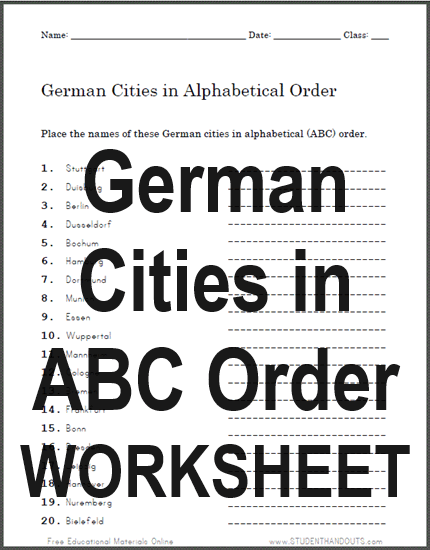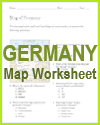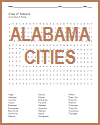| German Cities in ABC Order |
| www.studenthandouts.com > World Geography > Europe > Western Europe > Germany |
 |
 |
|---|
|
Cities of Germany in Alphabetical Order: Berlin, Bielefeld, Bochum, Bonn, Bremen, Cologne, Dortmund, Dresden, Duisburg, Dusseldorf, Essen, Frankfurt, Hamburg, Hannover, Leipzig, Mannheim, Munich, Nuremberg, Stuttgart, Wuppertal.
Click here to print. Click here for the answer key. Germany's major cities are vibrant hubs of culture, history, and economic activity, each offering a unique blend of traditional charm and modern innovation. Berlin, the capital city, is renowned for its historical significance and dynamic cultural scene. The city bears witness to pivotal moments in history, from the Prussian Empire to World War II and the Cold War. Landmarks such as the Brandenburg Gate, Berlin Wall, and Reichstag reflect its rich history. Today, Berlin is also known for its thriving arts scene, vibrant nightlife, and status as a tech and startup hub. Munich, the capital of Bavaria, is famous for its beautiful architecture, including the stunning Neuschwanstein Castle and the ornate Nymphenburg Palace. Munich is synonymous with Oktoberfest, the world's largest beer festival, drawing millions of visitors annually. The city is also a major center for finance, publishing, and technology, hosting the headquarters of global companies like BMW and Siemens. Hamburg, Germany's second-largest city, boasts one of the busiest ports in Europe. Its maritime heritage is evident in the historic Speicherstadt warehouse district and the modern HafenCity development. Hamburg is a cultural powerhouse with numerous theaters, museums, and music venues, including the prestigious Elbphilharmonie concert hall. (BTW it is also the city where the Beatles honed their sound before they made it big!) Frankfurt is Germany's financial capital, home to the European Central Bank and the Frankfurt Stock Exchange. Its impressive skyline, dominated by skyscrapers, has earned it the nickname "Mainhattan." Frankfurt is also a major transportation hub, with one of the world's busiest airports and the largest trade fair complex, Messe Frankfurt. The city's rich cultural scene includes the Städel Museum and the Goethe House, birthplace of the famous writer Johann Wolfgang von Goethe. Cologne, located on the Rhine River, is known for its iconic Gothic cathedral, Kölner Dom, which is a UNESCO World Heritage site. The city is a cultural center with numerous museums, galleries, and the famous Cologne Carnival. Cologne also has a strong media and arts presence, being home to several television and radio stations. Each of these cities contributes to Germany's reputation as a country of diverse cultural heritage, economic strength, and innovation, making them essential destinations for understanding the nation's multifaceted identity. |
| www.studenthandouts.com > World Geography > Europe > Western Europe > Germany |









